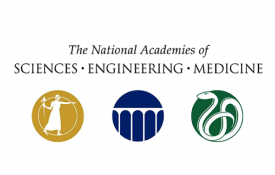-

Follow the National Academies’ Ongoing Study of Alzheimer’s Disease
The National Academies of Science, Engineering, and Medicine conducts studies and issues reports on various topics of interest to the science community and broader public. One such study of interest to psychological scientists, titled the “Decadal Survey of Behavioral and Social Sciences Research on Alzheimer’s Disease and Alzheimer’s Disease-Related Dementias” is currently underway
-
Detecting Fake News Takes Time
A few weeks ago, I took part in a free-wheeling annual gathering of social scientists from the academic and tech worlds. The psychologists and political scientists, data analysts and sociologists at Social Science Foo Camp, held in Menlo Park, Calif., were preoccupied with one problem in particular: With an election looming, what can we do about the spread of misinformation and fake news, especially on social media? Fact-checking all the billions of stories on social media is obviously impractical. It may not be effective either.
-
U.Va. Researchers Find Texts Can Be Early Warning For Suicide Prevention
Researchers at the University of Virginia hope to use text messages to help clinicians detect an increased risk of suicide attempts in real-time. With software that gauges a person’s mood according to the frequency of positive or negative words sent in a text — like happy, joyful, hate or mad — lead author Jeff Glenn and others aim to use digital data to move suicide prevention beyond relying on patients to self-report suicidal thoughts that can sometimes be fleeting or concealed. “When the clinician is doing a risk assessment, we’re only getting a really narrow snapshot in time during that face-to-face encounter,” Glenn said in a news release Monday.
-
Liar, Liar, Liar
When we think about dishonesty, we mostly think about the big stuff. We see big scandals, big lies, and we think to ourselves, I could never do that. We think we're fundamentally different from Bernie Madoff or Tiger Woods. But behind big lies are a series of small deceptions. Dan Ariely, a professor of psychology and behavioral economics at Duke University, writes about this in his book The Honest Truth about Dishonesty. "One of the frightening conclusions we have is that what separates honest people from not-honest people is not necessarily character, it's opportunity," he said.
-

Just Not That Into You: How and Why Men and Women Misperceive Sexual Interest
People tend to project their own level of interest onto prospective partners. This reality seems to explain why men and women misperceive a partner’s sexual interest.
-

New Content From Current Directions in Psychological Science
A sample of articles on political attitudes, reliability of memory, and religious cognition.

